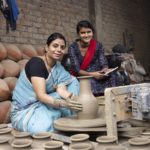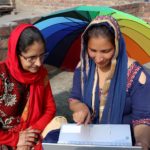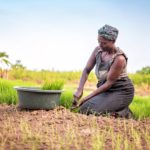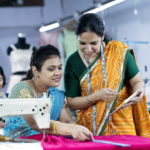Despite being the only region in the world where there are more female entrepreneurs than men, the vast majority of female-owned businesses in Sub-Saharan Africa are microenterprises and women’s businesses earn 34% lower profits than male-owned ones. Identifying the constraints faced by female entrepreneurs is vital for fostering economic growth. Recent studies have shown that…
Gender
Digitising Historical Plant Level Panel Data on Labour Outcomes
This project seeks to digitise historical plant–level data on labour outcomes from India. In addition to monthly, plant–level data on various labour outcomes, these data contain unique plant identifiers, which can be combined with existing cross–section surveys of Indian manufacturing plants to obtain new panel data on Indian manufacturing plants for the 1980s and 1990s.…
Ticket to Thrive: Effect of Safe Public Transportation on Mobility and Employment of Women in Urban India
In India, only 20% of women participate in the labour force—less than in Bangladesh and Saudi Arabia—hampering national economic growth and women’s financial independence. This project investigates how safe public transportation, specifically the Delhi Metro, can alleviate mobility constraints that keep 60% of working women within 2km of their homes. We leverage past and future…
Commuting Constraints and Labor Productivity: A Field Experiment on Women’s Mobility in India
Can alleviating commuting constraints enhance the labor supply and labor productivity of women from low-income households? This project studies this question in collaboration with the largest gig-firm in India, engaging 40,000 gig-workers, including 17,000 female workers. These workers commute to clients’ residences to provide a variety of services, including salon treatments, spa services, and home…
Peripartum Timing, Agricultural Productivity, Food Security, and Child Health in Africa
The majority of the population in LICs depend on rain–fed agriculture for livelihoods, which means the timing of most activities is dependent on the rainfall calendar and pattern. This has obvious implications on the timing of other events that reduce labour or make it hard to carry out heavy agricultural workloads. One such event is…
Female Wage Labour and Fertility
While growth has taken off in sub-Saharan Africa (SSA) in recent decades, the structural transformation of its economies is still lagging far behind that observed in other previously low-and-middle-income regions across the world. At the same time, SSA is undergoing a unique fertility transition: the decline in the number of children born per woman is…
Paternalistic Discrimination
Women in South Asia are often excluded from the labour market, reducing their financial autonomy, and negatively impacting their physical and mental wellbeing (Verick, 2014; Field et al., 2021). Large government interventions have failed to close the gender employment and wage gaps for over two decades (NIPORT 2007–2017, BBS 2018). This shows that education and…
Together to Work? Role of Travel Buddies on Women’s Employment and Mobility
The labour market participation rate for women in India is significantly low, with only 25 women for every 100 men being engaged in the workforce. This striking disparity is far below the global average of 66.7 women for every 100 men. Existing data and observations suggest that societal norms and concerns about safety restrict many…
Education and Labour Market Dynamics in a Period of Rapid Education Expansion:
Recognizing the need for policies that address poverty and inequality and build social cohesion, the Ghanaian government rolled out free compulsory primary education in 1996 and free senior high school provision in 2017. With the first cohorts exposed to the free education policies now reaching prime adulthood, our project aims to take stock of how…
From Jobs to Careers
Women’s participation in the labour market increases economic growth at both the national and firm level, yet women worldwide still face significant labour market challenges. Current research on women’s labour market experience in developing countries mainly focuses on short-term jobs. We propose shifting the focus from jobs to “careers,” i.e., occupations characterized by a long-term…









